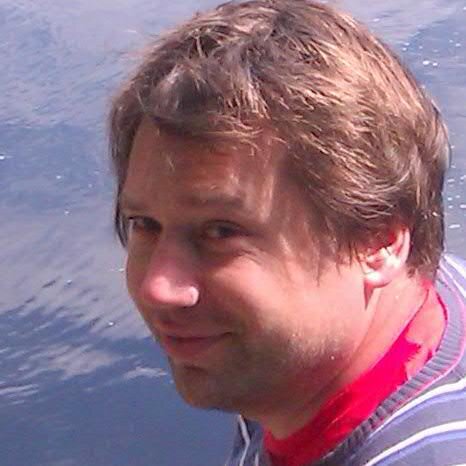
Hanne Løvlie
@dr_lovlie
Followers
247
Following
439
Media
74
Statuses
183
Joined July 2015
We have a new paper out! It shows how dietary manipulation can reduce fearfulness in hens @LiUBiology @LiU_Neuro
https://t.co/pEtxzEM1nN
0
4
14
Tidiga upplevelser och genuttryck påverkar impulsivitet hos höns https://t.co/u2aFy5mQuX
https://t.co/KZtYs0Cz69
@LiU_Neuro @LiUBiology @liu_universitet
0
0
2
Human contact seeking is observed in some domesticated animals, but also our test birds do it, suggesting experience with humans too can develop it. Cool work led by Diana Rubene, published in https://t.co/hlTfj2lpCi
@LiUBiology @LiU_Neuro
0
0
1
Well done @KaptenLingon et al to our contribution to the special issue in AB&C on replication in behaviour research w @zuuletc @AnKreshch
https://t.co/piqbAZaPtj
#LiUBiology #LiU_Neuro
0
0
3
Sam @Serious_Skyles' eye catching red junglefowl picture front covers the special issue in AB&C on replication in animal behaviour research https://t.co/LLxpYNr1HE with @KaptenLingon @zuuletc @AnKreshch et al #LiUBiology #LiU_Neuro
0
2
5
Human drugs leak out into nature - our new paper on how drug affecting dopamine and serotonin also affects cricket behaviour, is out! Well done team cricket! @LiUBiology @LiU_Neuro @liu_universitet
https://t.co/6fqPL0pV7J
0
2
5
Our meta-analysis of what affects optimism😀and pessimism☹️in animals 🐭🐷🐤🐕🐝🐂🐒is out!! https://t.co/ecS96Mfane And here is a video of how it can be measured: https://t.co/47barEYXJT
A secret to making animals 'optimistic' inside https://t.co/3OAM4M87By 6 years in making with wonderful collaborators A sister paper on how to make psychoactive drugs paper: https://t.co/gPVHUWE9QW preprint: https://t.co/hqnAcCRvr1
1
3
19
Meanwhile in Sweden
1
0
3
This study is dedicated to the late Ian Moore, Fellow of Wadham College, who helped initiate our collaboration with @BenediktKessler & co. He was a friend and colleague. He is dearly missed. 14/14 https://t.co/iTgIt2pmIn
0
1
3
I want to thank everyone involved in this work, including many undergraduates and our international collaborators. This work wouldn’t have been possible without the large joint effort. 13/14
1
1
2
So that’s a brief summary of what we did in the last 6 years. We also had quite a few interruptions to the work, due to asbestos, babies and lastly covid. But we made it in the end! 12/14
1
1
5
Finally, we looked at if a lifespan-extending genetic manipulation could postpone reproductive ageing. To our delight, we found that these long-lived males were more fertile in older age, suggesting that such interventions can delay both male reproductive ageing & death. 11/14
1
1
5
Our results revealed that both sperm and Sfp quality & quantity decline with male age, making distinct contributions to declining reproductive performance. But the relative impacts of age on sperm and Sfps often differ, leading to mismatches in their ageing patterns. 10/14
2
1
2
Using live/dead sperm staining assays, we also showed that frequent mating reduces sperm viability. So, the double impact of ageing and mating, renders the old males depleted of viable sperm, hence much less fertile. 9/14
1
1
2
To understand this, we joined forces with Josefa Steinhauer’s lab in Yeshiva University, and revealed that sperm production declines chronologically with age. There was no effect of mating activity on the decline: surprising because sperm production is known to be malleable. 8/14
1
1
2
We next used GFP-labelling to look at the impact of age on sperm. We found that females mated to old, sexually active males had very few sperm in storage. This got us curious about how ageing affects sperm production capacity. 7/14
1
1
2
We visited Mariana Wolfner’s lab in Cornell to conduct Western blots on a set of key Sfps. We discovered evidence of changes in the quality of some Sfps in old males, possibly through degradation or post-translational modifications. 6/14
1
1
2
Next, we used quantitative proteomics to see how the seminal proteome changes with age with @BenediktKessler & co. To our surprise, we found that old, sexually active males don’t lack Sfps. How then do Sfps contribute to the decline in the ejaculate? 5/14
1
1
2
First, we tested if Sfps explain the strong decline in ejaculate performance seen in old, sexually active male fruit flies. Our experiments with spermless (tudor) males revealed that the Sfps do indeed contribute to reproductive ageing. 4/14
1
1
2



